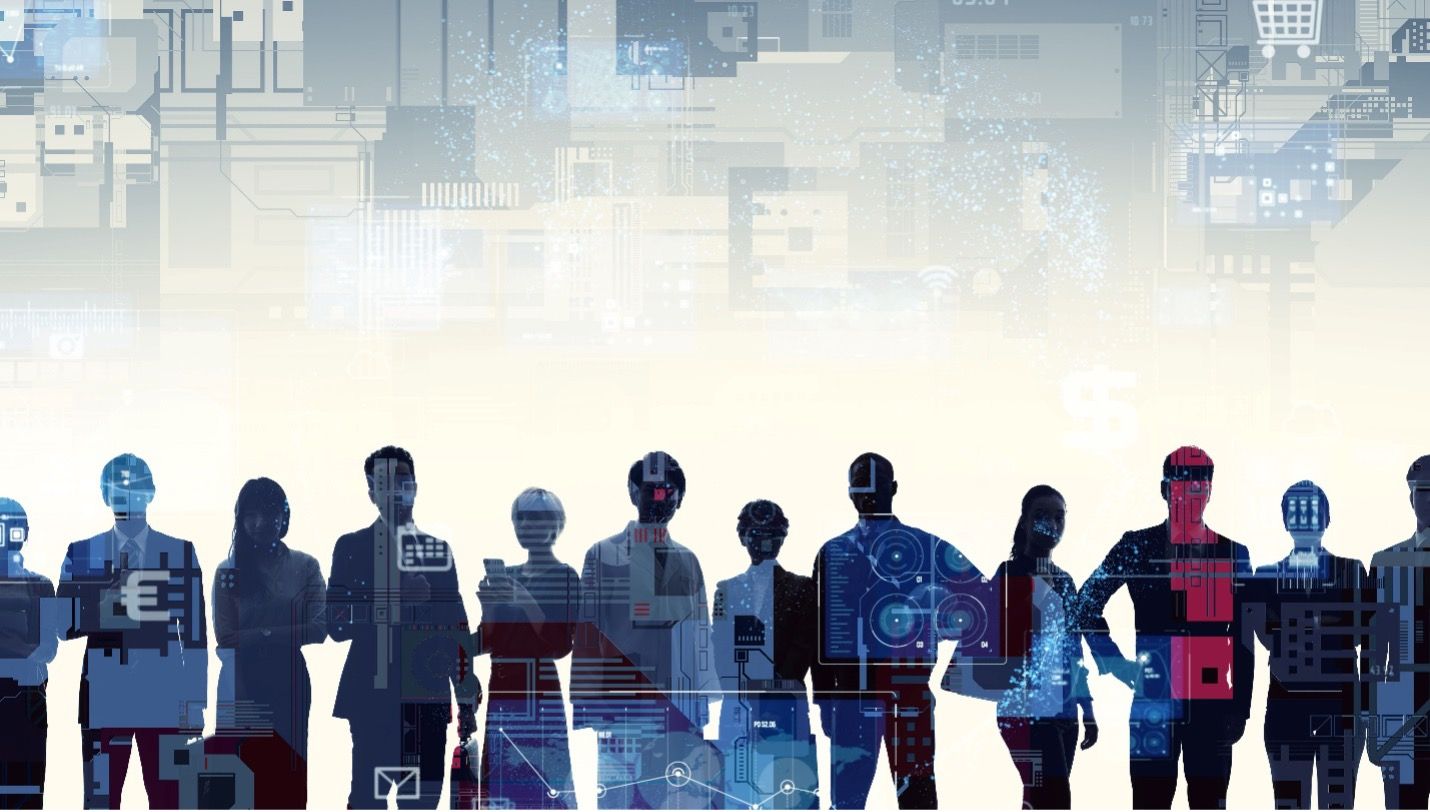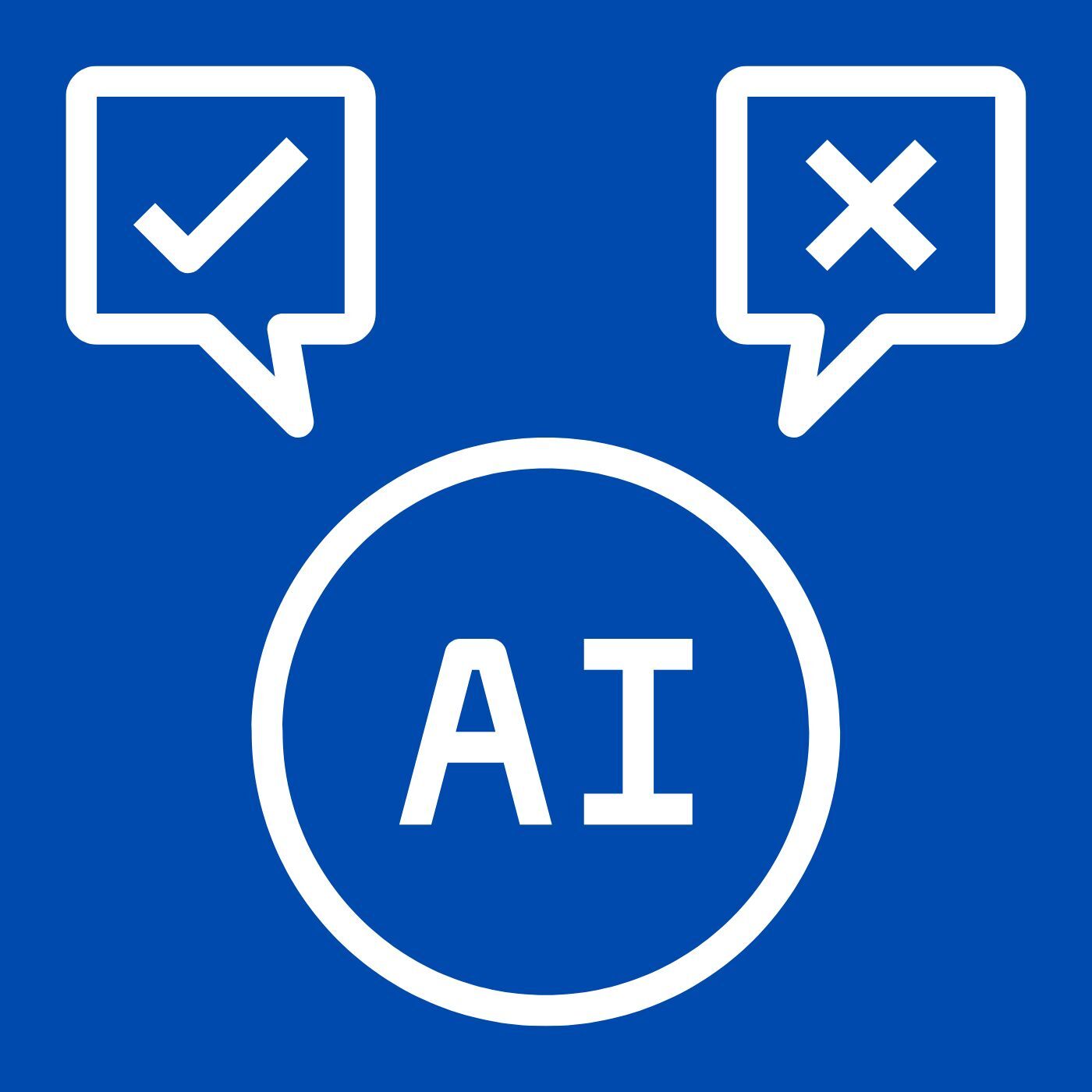
Expanding AI Skills
If you’ve been researching the AI skills in demand today, you’ve likely seen anything from machine learning and deep learning to programming and statistics. Obviously, skill demands can vary by industry and company, but some critical skills aren’t getting enough attention.
Just ask Salesforce.
They released a report from an ongoing Generative AI study that said security, ethics and trust are a growing concern – especially in the areas of customer relationships.
Salesforce Chief Ethical and Humane Use Officer Paula Goldman says, “As companies embrace this technology, businesses need to ensure that there are ethical guidelines and guardrails in place for safe and secure development and use of generative AI.”
A key takeaway is that CEOs and company leaders shouldn’t let limit their confidence in AI skills alone. They need to have guidelines in place to ensure that security, trust and ethical concerns are covered.
If AI is creating the content, but people need the skills to evaluate, edit and control it, it’s clear that another set of skills is required in AI careers and jobs – human skills.
Improving Human Skills
How can we make ourselves MORE skilled than AI?
That was a recent question posted in the Quora Forums, and the responses should be a motivation to develop your skills as an AI specialist, Engineer or similar title, but also maintain a passion for improving your humanized skills.
Amit Batra, Chief Operating Officer at Innovana Thinklabs, provided an answer that should resonate with your human and AI learning sides:
“While AI can be incredibly powerful and efficient, there are certain skills that humans possess that machines do not. One way to make ourselves more skilled than AI is to focus on developing our creative and critical thinking abilities. Creative thinking allows us to come up with innovative solutions to problems, while critical thinking helps us analyze the available data and evaluate different options.”
So, while you learn new skills for careers in AI, it’s equally essential to improve your creative and critical skills continuously. This was true with the advancement of other technologies as well.
As automation and technology reshaped industries, strong creative and critical thinking abilities helped people solve complex problems, generate innovative ideas, and add value to their organizations.
And remember, those skills are valuable across multiple industries.
Amit went on to say:
“Another way to make ourselves more skilled than AI is to cultivate our interpersonal skills. Machines may be able to process data quickly and accurately, but they cannot replicate the level of empathy and understanding that humans have for one another. By honing our communication, collaboration, and problem-solving skills, we can become better equipped for navigating complex social situations.”
Great point! Whether you’re working for a B2B or B2C company, you’ll likely be communicating or marketing messages to people.

In 2019, Forrester shared a Brand Humanity Study that revealed an intensifying consumer demand for brands to speak like humans.
“The fundamental finding — that human communication is achieved through a mix of emotional resonance and functional execution aligned to personal, natural, and considerate communication efforts — remains intact. We do see, however, that personalization is taking a more central role in how customers conceptualize what is and is not an example of human communication.”
If AI and human employees are going to be able to work together, it’s just as crucial for people to evolve as it is for technology to advance.
One last point from Amit:
“Finally, we can also strive to stay ahead of the curve by staying informed about new technologies and developments in AI. By understanding how machines work, we can develop strategies for leveraging their strengths while minimizing their weaknesses.”
That perfectly sums it up, and learning how to incorporate AI into your work should excite you.
It’s important to note that other company leaders express the importance of humanized skills to complement their AI skills. It should calm some fears that all companies will replace humans with AI and automation.
Colette Stallbaumer (General Manager, Microsoft 365 & Future of Work at Microsoft) told CNBC that humans are always in control, especially when it comes to what to do with AI-generated content.
“You still have to use those judgment skills when thinking about when to use AI and making those calls — that’s really where the human agency comes into it.”
This comes as leaders identify analytical judgment, flexibility and emotional intelligence as new (human) core competencies in business.
Learning AI for Your Current Job or New Career

If you really want to learn AI, you might wonder if you should quit your current job due to fears about AI replacing their current positions. Mike Loukides (VP of emerging tech content at O’Reilly Media) says software developers who fear for their jobs should take a step back and think about the bigger picture.
“Some companies will certainly value AI as a tool for replacing human effort rather than for augmenting human capabilities,” he said. Programmers who work for those companies risk losing their jobs to AI. If you work for one of those organizations, I’m sorry for you, but it’s really an opportunity.”
He points out that the job market is still very strong for programmers, and he doesn’t expect that to change. He also thinks there will be companies that will view programmers that learn AI to be valuable instead of expendable.
Even if programs like ChatGPT get incorporated into coding, there are still benefits to the programmer and their skills because they can use AI to improve time efficiency.
“You can use it to produce more code — I’ve yet to see a programmer who was underworked, or who wasn’t up against an impossible delivery date. Or you can spend more time on the “rest of the job,” the 80% of your time that wasn’t spent writing code.”
The rest of their job will require skills like design, testing, debugging, security auditing, prompt writing and customer collaboration. A critical takeaway is realizing that combining the right skills development can empower employees to be more efficient, benefiting them and their organization.
In a Harvard Business Review article, “Companies That Replace People With AI Will Get Left Behind,” Behnam Tabrizi and Babak Pahlavan said there should be an investment in AI and AI-relevant skills.
“Like companies, employees can invest aggressively in AI by acquiring the requisite skills and experience — thereby not just protecting their careers, but adding value at a higher level.”
The landscape and demands of AI and AI skills are rapidly evolving, and it's essential to recognize that a holistic approach is required to thrive in this dynamic field. While technical expertise remains crucial, the insights from Salesforce's Generative AI study and the perspectives shared by industry leaders highlight the significance of addressing security, ethics, and trust concerns in AI applications, particularly in customer-centric domains.
Creative and critical thinking, interpersonal communication, and staying informed about emerging technologies are instrumental while working with AI. Additionally, the mix of human and AI collaborations becomes increasingly critical as companies seek to merge technological advancements with the empathetic and judgment-driven qualities that humans uniquely possess.
To live in a job market where humans and AI coexist, continuous growth and adaptation must be present. Embracing AI as a tool for augmentation rather than replacement can lead to enhanced efficiency and productivity. Individuals can position themselves as indispensable assets in the AI-driven era by fostering a diverse skill set encompassing technical prowess, interpersonal finesse, and adaptability.
If you want to take your first steps in learning AI, you can take advantage of our special offer to enroll in our new 8-week “Applying AI” Course.

